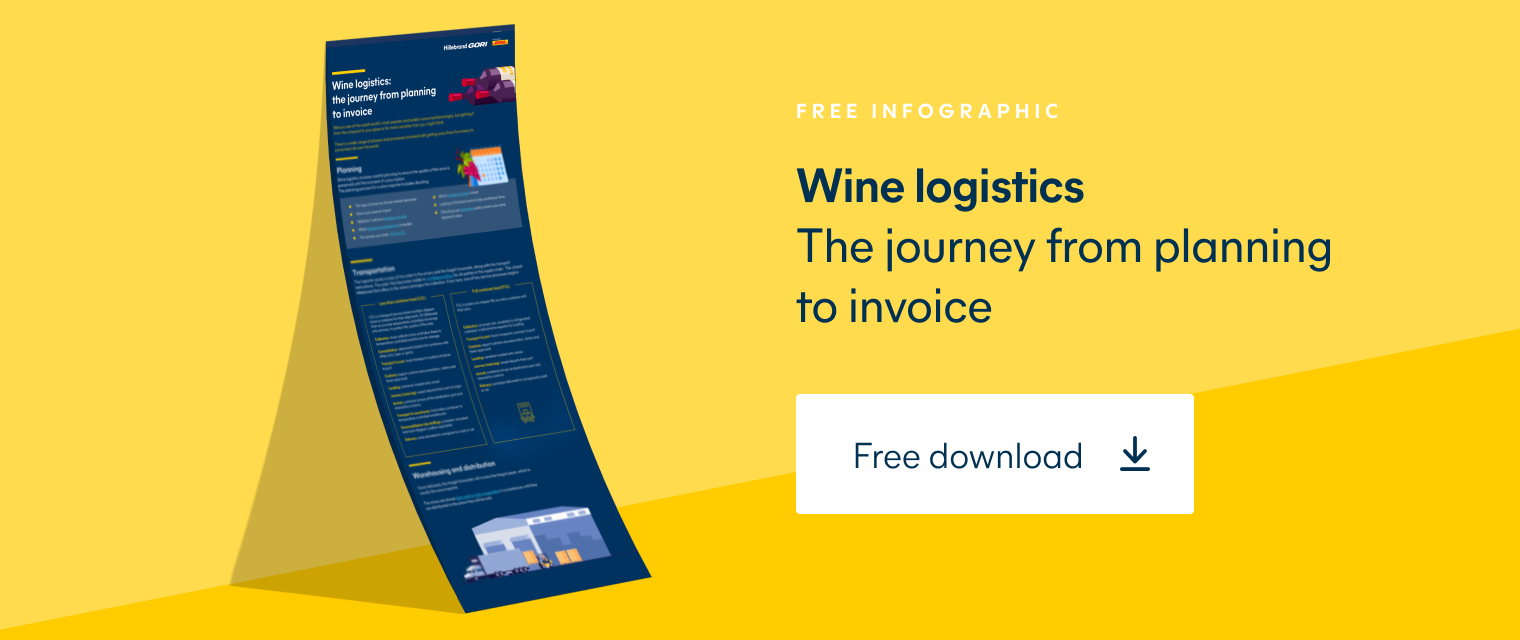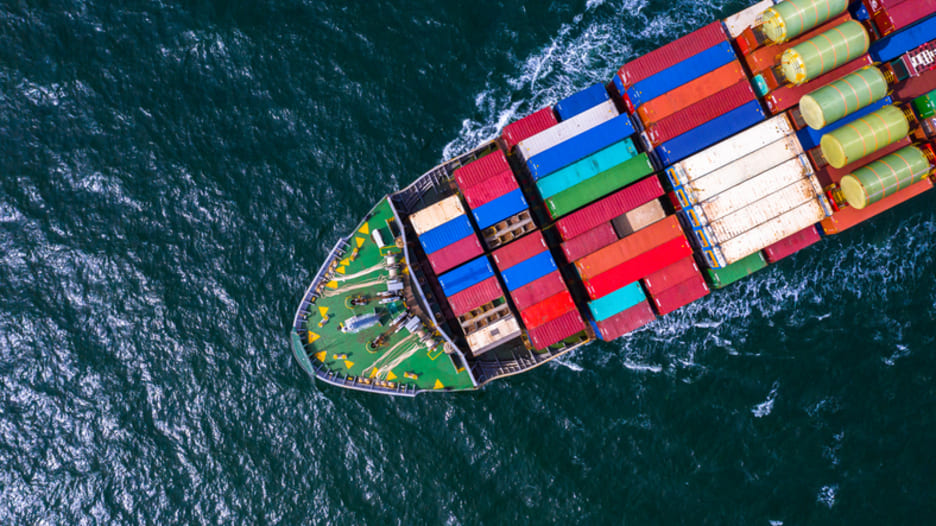Go green: The route to sustainability in logistics for importers
With global carbon emissions projected to double by 2050, wine, beer and spirits importers can be understandably concerned about sustainability in logistics. It’s been reported that the drinks industry is set to miss their 2030 emission reduction target, highlighting a need for action among everyone in the supply chain. That said, beverage shippers do have the power to avoid emissions and lower their carbon footprint by incorporating sustainable practices into their operations.
What’s sustainability?
In recent years, sustainability has become more than just a buzzword; it's a crucial aspect of responsible business practices. Sustainability refers to meeting the needs of the present without compromising the needs of future generations. This involves considering the environmental, social, and economic impacts of production, transport and distribution processes.
Importers of wine, beer, and spirits play a pivotal role in shaping the industry's future, making it essential for them to understand what sustainability means and take action. For example, importers can collaborate with suppliers and transportation partners to optimize the routes their shipments take, to reduce emissions. Not just for the final product, but the whole supply chain.
Sustainability in the wine, beer & spirits industry
Consumers care about sustainability. As awareness about climate change and its environmental impact grows, consumers are making more informed choices. A 2023 survey showed that 78% of consumers consider sustainability to be important in their purchasing preferences. Furthermore, 84% claimed that poor environmental practices would deter them from a company, and 87% want brands to proactively adopt sustainable practices. For businesses importing wine, beer or spirits, this shift in consumer behavior presents an opportunity to position themselves as leaders in an evolving market.
A holistic approach that integrates sustainable practices throughout the viticulture and winemaking processes as well as packaging and transportation is crucial for a more environmentally friendly and low-carbon footprint wine industry. According to the International Organization of Wine and Vine (OIV), there are two goals to achieve; prevent creating a negative impact on the environment, while adapting to climate change. Soil management, air pollution and preserving biodiversity all fall under sustainability in winemaking.
Sustainability in logistics
The global shipping industry moves around 90% of the world’s traded goods and accounts for about 3 percent of global green house gas (GHG) emissions. The wine, beer and spirits trade, like many other industries, relies heavily on ocean freight to transport beverages around the world. It’s a mode of transport that for years predominantly relied on conventional fuels. This however is changing, with regulations brought in by the IMO for example and the European Emissions Trading System (EU ETS). So for shippers to achieve sustainability in logistics, they need to work with an expert who understands the current landscape, and who has the know-how and experience to help them reduce their shipment emissions.
There are basically two ways to lower the amount of carbon emissions spent on the main leg of your shipments journey. One way is to optimize your supply chain to burn less fuel, leveraging for example modal shift or alternative routings. The other way is leveraging sustainable fuels – what we call burning clean, to help you achieve your decarbonization targets on a larger scale and in the pace needed. Through our insetting approach, we support the reduction of carbon emissions from inside the logistics industry and not elsewhere. Beverage shippers can choose from a range of tools Hillebrand Gori have to offer, like providing you transparency of your emissions as a first step or facilitating a fuel switch from fossil to sustainable fuel for air and ocean freight shipments.
Your path to decarbonization
As industry leaders, we have a responsibility to pave the path toward sustainability in logistics. To that end, our parent company, DHL, is investing 7 billion Euros into climate-neutral logistics solutions over the next 6 years.
If you want to incorporate sustainable logistics into your operations, here is our six-step approach you can follow:
1. Know your carbon footprint
The myHillebrandGori app has an emissions reporting tool which gives you complete visibility of your orders including the following:
Easy reporting at the click of a button
CO₂ emissions for each shipment
Customizable and automated reporting
2. Define your CO₂ reduction targets
Develop emission reduction targets that are both practical and attainable. To achieve meaningful progress with your climate targets is to join the Science Based Targets initiative (SBTi) – a step-by-step process for setting science-based targets for your company and mapping out a clearly defined path to reducing GHG emissions.
3. Identify key carbon reduction levers
Decide which changes you can implement to meet your new emission level goals. There are two ways to do this – optimization solutions to burn less fuel and alternative technologies to burn clean fuel.
4. Select key trade lanes and evaluate the impact
By knowing your emissions and understanding the carbon reduction levers available to you, you can identify your quick wins and routes in which you can make the most positive impact.
5. Make a decision and implement it
After evaluating your options and selecting the carbon reduction levers that meet your needs, it’s time to put them all into practice. But it’s crucial to include sustainability aspects in procurement processes if you want to achieve your sustainability targets.
6. Extend to other lanes and levers
Once you get to this stage, you’ll be in a position to repeat the process with other lanes. Taking this slow and steady approach will ensure you reduce your carbon emissions successfully.
Like a lot of companies, Hillebrand Gori views sustainable practices as both an ethical duty and a long-term business strategy. Adapting to change is key to both environmental and financial sustainability. This is particularly relevant for the beverage industry, where the delicate balance between tradition and progress is as nuanced as the flavors in wine, beer and spirits.
Contact us to discuss how, together, we can reduce your company’s carbon footprint and achieve sustainability in logistics.
Published 7th February 2024
Sustainability is the ability to support today without compromising tomorrow. Environmental sustainability refers to conserving the planet's natural resources and mitigating climate change.
It’s taking a more environmentally friendly approach to transporting goods. This means by lowering the related emissions on the cargo’s journey, by choosing sustainable fuels, for example.
A tool or mechanism to enable you to reduce your carbon emissions. For example, switching to transport modes that are more efficient.
How can we help your business grow?





